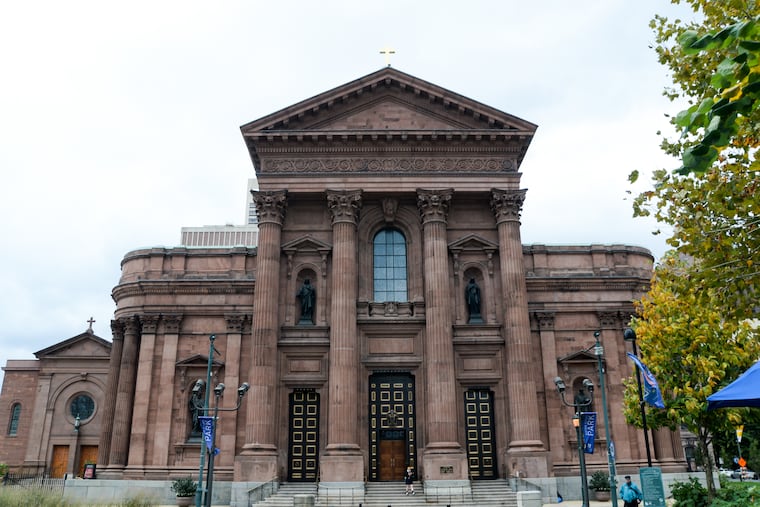Archdiocese of Philadelphia’s sexual abuse reparations fund starts with $25M to $30M
"This is for initial funding only. We expect that the ultimate cost is going to be greater than our initial funding."

The Archdiocese of Philadelphia said Tuesday that its fund to compensate Catholic clergy sex-abuse victims whose claims are too old for court will start with $25 million to $30 million and could start paying claims in 60 to 90 days.
"This is for initial funding only. We expect that the ultimate cost is going to be greater than our initial funding," said Timothy O'Shaughnessy, chief financial officer for the archdiocese.
To pay additional claims, the archdiocese will borrow an undetermined amount internally. Possible lenders are a trust to pay for the perpetual care of cemetery lots, a pension fund for priests, and a benefits trust, O'Shaughnessy said.
The archdiocese shared the details on the Independent Reconciliation and Reparations program, which was announced Nov. 8, as it reported that in the year ended June 30, its core operations were in the black for the first time since at least fiscal 2012 and likely far longer than that.
Church officials in the Dioceses of Pittsburgh, Allentown, Harrisburg, Greensburg, and Scranton unveiled plans for similar funds this month, following a failed bid by some lawmakers in Harrisburg to open a temporary window for older abuse victims to sue.
Critics saw the plans to start compensation funds as a move to undermine legislative efforts to give victims a chance to take their claims to court. By accepting money from the compensation fund, victims give up their right to sue if lawmakers ever lift the statute of limitations.
The archdiocese hired Kenneth R. Feinberg, who served as special master for the 9/11 victims' compensation fund, and his firm to process claims and determine how much victims will receive. "The diocese cannot appeal or challenge our ruling," Feinberg said on Nov. 7.
Packets of information about the fund have been sent to 340 known survivors of clergy sexual abuse in the Philadelphia Archdiocese, which includes Bucks, Chester, Delaware and Montgomery Counties and Philadelphia, officials said last week. Victims have until Sept. 30, 2019, to file claims.
Though the archdiocese does not have unlimited money or assets to sell, officials have said there are no caps on individual claims or on the aggregate amount that will be paid.
In New York, where Feinberg's firm is managing five diocesan compensation funds, the largest individual payout has been $500,000, according to Camille S. Biros, business manager in Feinberg's Washington office.
The five New York programs have paid more than $200 million over the last two years to more than 1,000 victims. The Archdiocese of New York said in August that it had paid nearly $60 million to 278 victims. It took out a $100 million mortgage on Manhattan property to pay victims.
O'Shaughnessy said he is preparing to fully fund the Philadelphia reparations program. He had no estimate of what the ultimate cost will be.
The initial cash, he said, will come from a surplus in a risk insurance trust, cash on hand, liquidated investments, and a portion of the proceeds from the sale of the Newman Center at Drexel University and the University of Pennsylvania.
The anticipated loans "will be true loans, and they will be documented as such. The terms will be market. There will be market rates of interest. There will be collateral," O'Shaughnessy said.
As of June 30, the priests' pension fund had $112 million in assets and the welfare benefits trust had $23.8 million in net assets. The latest figure for the cemetery fund was not available. It had $42 million in net assets on June 30, 2017.
"We're not going to use every dollar in all of those funds," O'Shaughnessy said. "All of our lenders will lend some of their assets, but none of them will lend all of their assets."
The archdiocese has not yet made final decisions on collateral for those loans.